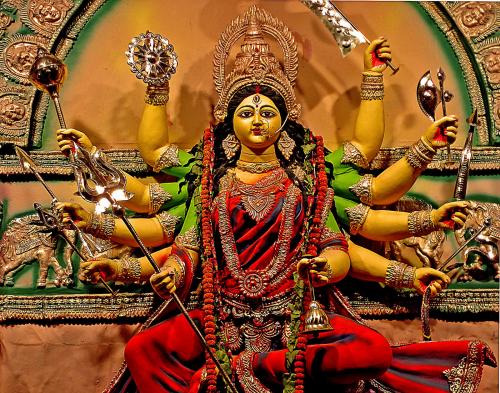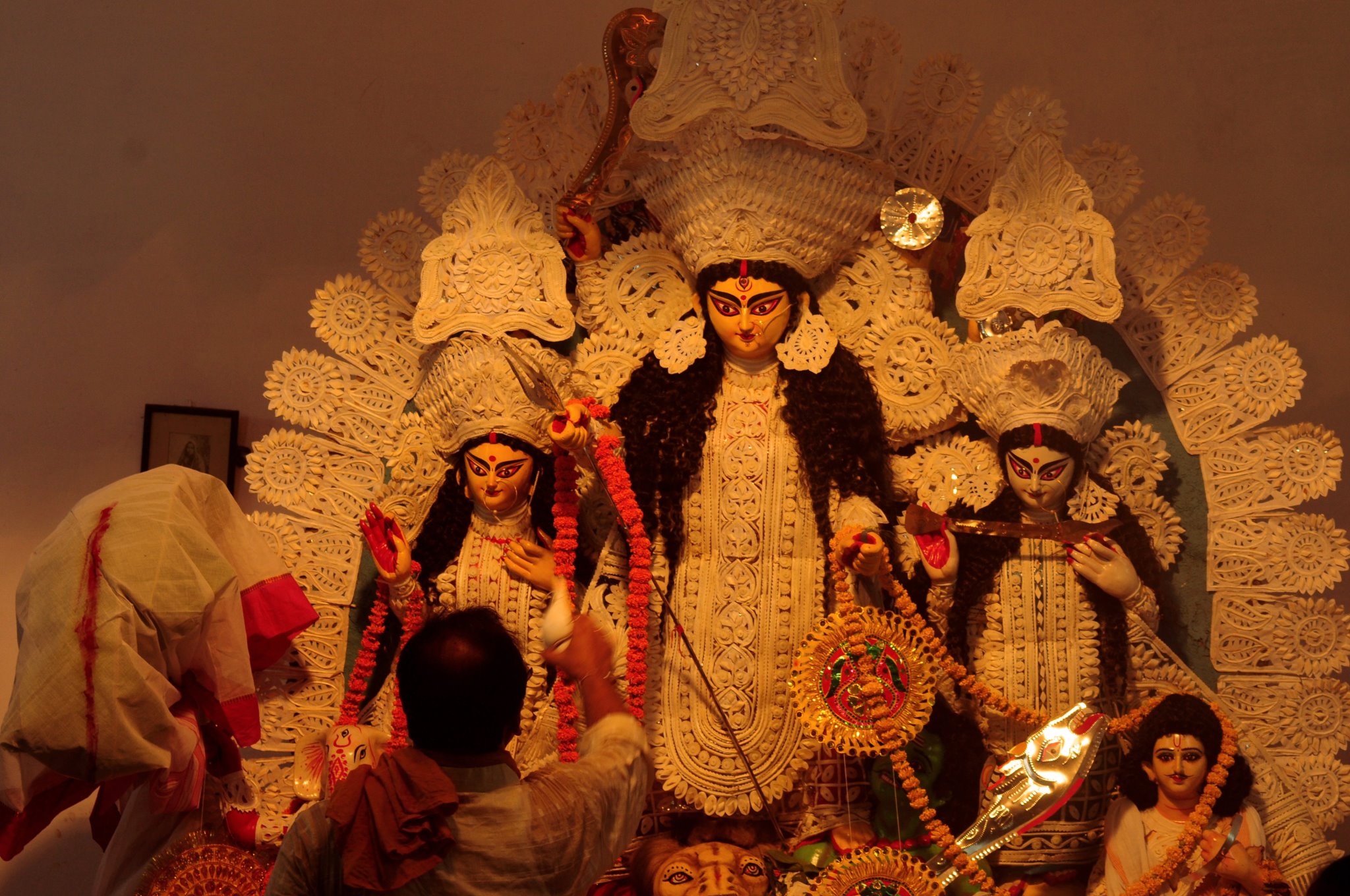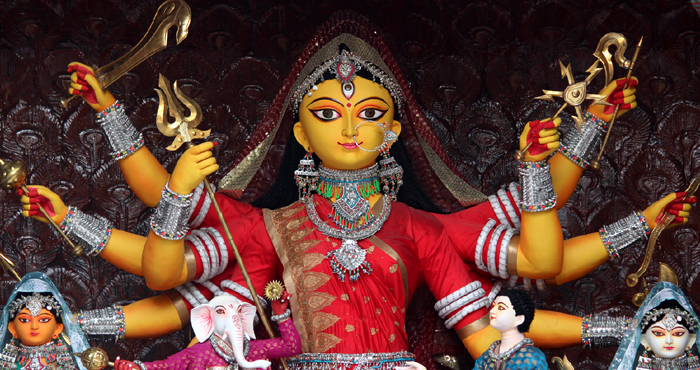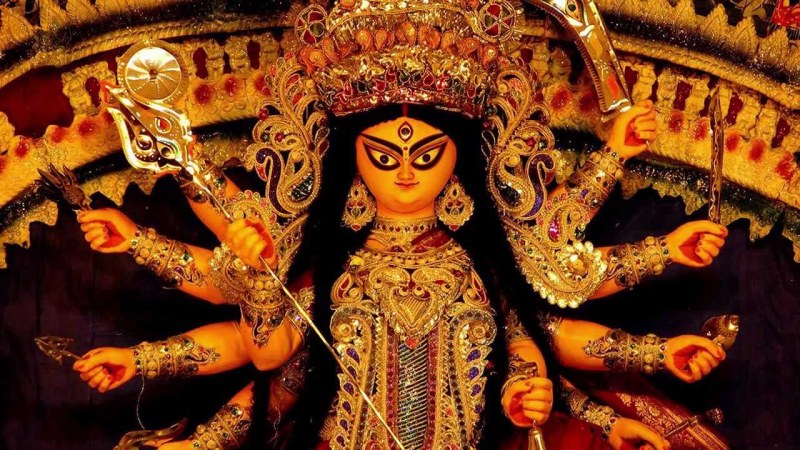Durga Puja has arrived. Durga, the goddess of power and strength, is perhaps the most important goddess of the Hindus. She is a multi-dimensional goddess, with many names, many personas, and many facets. As Mahishasuramardini or Shakti, she is the destroyer of evil, the triumphant slayer of the demon Mahishasura. As Kali, she turns black as the night, terrible in rage and fury, goddess of time and empowerment. As Parvati, she is the demure and pretty consort of Lord Shiva. She is Bhawani, the symbol of life, she is Sati, the object of death, she is Basanti, the herald of springtime. She is also Amba, Jagadhatri, Tara, Ambika and Annapurna. Durga, through all her forms, encompasses the essence of salvation and sacrifice.
But my favourite interpretation of Durga Puja and Maa Durga is ‘women’s shakti’. There are so many examples that I could site from different fields, be it sport, medicine or even the corporate world. But the example I would like to share with you is from politics.
Though, only 11% of India’s MPs are women, the Women’s Reservation Bill proposes to take this number to 33.33%. We are extremely proud yet humbled that the percentage of women MPs in the Trinamool Congress is a healthy 35%.
The lady who helped us cross this threshold is my colleague Mamatabala Thakur, who was elected from Bongaon, in January this year.
For me, the story of the by-elections for the Bongaon parliamentary seat and the Krishnaganj assembly seat, earlier this year, was about women’s power in politics. This is not just a reference to Mamata Banerjee, our stalwart leader, who has fought the onslaught of two successive governments at the Centre and emerged vindicated, but also of our Party’s culture of empowering women down the line.
The by-election was necessitated when our MP, Kapil Krishna Thakur, passed away in October 2014. He was a leading light of the Matua community, and there were many contenders for his seat of Bongaon. His brother was a Trinamool MLA and minister in the state government, who resigned and joined the BJP, as did his brother’s son. Now both father and son were contenders for the BJP nomination, with the son – nephew of the late Kapil Krishna Thakur – finally getting the ticket.
Who would the Matua community back? Would it stay true to Trinamool or would it swing with that section of the Thakur family that had defected to the BJP? The decision was taken by Mamata Banerjee and the 95-year-old matriarch of the Matua community, Binapani Devi, the “Great Mother” of the Matua people, ageing but still sharp as a needle. Rather than back her son or grandson in the BJP – or even her second surviving son (Kapil Krishna Thakur’s other brother) – a new name was proposed: Mamatabala Thakur, the late Kapil Krishna Thakur’s wife.
The lady, a newcomer to politics, who was very aware of the social and economic conditions and challenges among her constituents, won easily. The Matua community, with its origins in a religious reform movement in erstwhile east Bengal, taught a few lessons in women’s shakti and in consistent, principled politics to city-slicker media honchos, who had all but announced a BJP victory.




